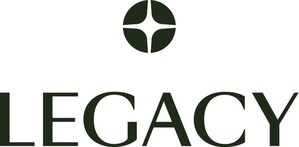New Study Reveals that Movies with Smoking Make Less Money
WASHINGTON, Oct. 4, 2011 /PRNewswire-USNewswire/ -- A new research report finds that smoke-free movies make more money at the box office than movies with smoking. Exposure to smoking in movies has been a problem that researchers say can influence up to 200,000 youth to light up for the first time every year. Public health authorities, such as the U.S. Centers for Disease Control and Prevention and the World Health Organization, have called on studios to implement policies that would reduce youth exposure to smoking in movies, such as rating movies with smoking R. While studios traditionally rate more movies PG-13 because of their broad reach and higher box office sales, the results suggest that studios could benefit from making a movie smoke-free and would not have any financial justification to delay implementing an R-rating to do so.
(Logo: http://photos.prnewswire.com/prnh/20101101/DC86294LOGO )
University of California-San Francisco researchers analyzed more than 1,200 films released to U.S. theaters between 2002 and 2010. Their findings show that, on average, movies with smoking only made 87 percent of what comparably rated smoke-free movies made. Among movies with similar smoking status, those that were rated R only made 87 percent of what PG-13 movies made.
Cheryl Healton, DrPH, president and CEO of Legacy®, a national public health organization that funded the study says the data make a compelling business case for addressing this major public health issue. "An R rating for future films would be enough incentive for media companies to eliminate smoking from all the films they want to market to kids (G, PG and PG-13 rated). If they did so, movie studios would be better off, and it would result in cutting youth exposure to smoking in movies in half."
An increasing number of prominent U.S. health authorities recommend that the U.S. film industry adopt the R-rating for future movies with smoking. The rating proposal includes exceptions for portrayals of actual historical people who actually used tobacco (such as tobacco-chewing Oakland A's manager Billy Beane, played by Brad Pitt in Moneyball; PG-13, Sony) or the dire health consequences of tobacco use. Research suggests that implementing an R-rating would mean less youth lighting up for the first time, averting potential disease and death due to tobacco use.
"Faced with evidence that on-screen smoking that harms adolescents is associated with lower box office, why is it taking Hollywood so long to turn the page on tobacco?" asks Dr. Stanton Glantz, professor of medicine and director of University of California, San Francisco, who coauthored the study. The R-rating policy is predicted to incentivize film producers, who routinely calibrate content to achieve ratings desired for marketing purposes, to eliminate most smoking in youth-rated movies.
"If box office performance is any guide, a typical PG-13 movie without smoking will earn 41 percent more at the box office than a typical R-rated movie that includes smoking," says Dr. Glantz. "Hollywood has no box office rationale to delay adopting the R-rating for tobacco."
Legacy® is dedicated to building a world where young people reject tobacco and anyone can quit. Located in Washington, D.C., the national public health organization helps Americans live longer, healthier lives. Legacy develops programs that address the health effects of tobacco use, especially among vulnerable populations disproportionately affected by the toll of tobacco, through grants, technical assistance and training, partnerships, youth activism, and counter-marketing and grassroots marketing campaigns. The foundation's programs include truth®, a national youth smoking prevention campaign that has been cited as having contributed to significant declines in youth smoking; EX®, an innovative public health program designed to speak to smokers in their own language and change the way they approach quitting; and research initiatives exploring the causes, consequences and approaches to reducing tobacco use. Legacy was created as a result of the November 1998 Master Settlement Agreement (MSA) reached between attorneys general from 46 states, five U.S. territories and the tobacco industry. Visit http://www.legacyforhealth.org/.
SOURCE Legacy
WANT YOUR COMPANY'S NEWS FEATURED ON PRNEWSWIRE.COM?
Newsrooms &
Influencers
Digital Media
Outlets
Journalists
Opted In





Share this article